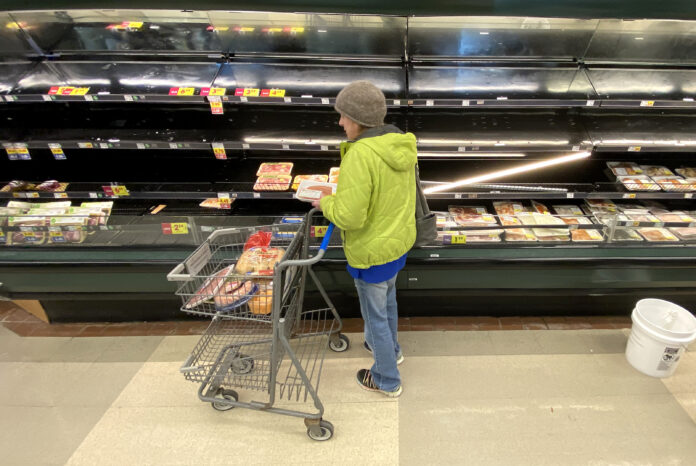Some Washington state residents were in for quite a surprise when they recently received unexpected checks ranging from $50 to $120 in the mail.
Washington Attorney General Bob Ferguson last month promised to send out $40 million to low income residents after settling a lawsuit against chicken and tuna company executives who colluded to fix prices. Fifty-dollar checks go to single-person households, while $120 checks go to households with more than one person.
The payments were only meant to go to those with the lowest of income in the state or to residents making less than 175 percent of the federal poverty level. For example, that rate is $34,510 for a two-person household, but some Washington residents making far above that found the checks in their mailbox.
“There’s no way in the world we are meeting the criteria,” resident Chris Payne told The Seattle Times in an article publishedon Thursday, who added that he recently retired in Sequim and has what he calls significant investment income.
And Payne isn’t the only one. There are other reports of the $50 or $120 checks going to wealthier individuals, alongside dead residents and vegetarians who never had to pay for the hefty chicken and tuna prices in the first place.
Ferguson’s office told The Seattle Times a “small fraction” of the 402,000-plus recipients have reported errors. This amounts to roughly .09 percent and includes 167 cases where the recipient had died before receiving the check.
“No taxpayer dollars were used to mail the funds,” Brionna Aho, a spokesperson for Ferguson, told Newsweek on Friday afternoon.
Aho added that all uncashed funds will go into a reserve for a claims process, and some of the errors are able to be corrected.
“If a small number of people whose incomes are outside the range we set received checks, we are encouraging them not to cash them,” Aho said. “Even if they do, they were still likely impacted by the price fixing scheme.”
Gregory Shamus/Getty Images
When Ferguson first announced the payments last month, he said it would be difficult to prove which residents had been affected by the meat cost surges since it happened approximately 10 years ago.
“We know that people do not have receipts from products they purchased in 2011, or 2012, or 2013, so no one has to have a receipt to get their money,” Ferguson said at the time, The Seattle Times reported. “What we decided to do was target families who could least afford these illegal price increases.”
The data to determine who was eligible for the rebates was provided by Experian, a data gathering and credit monitoring company.
Newsweek has reached out to Experian for comment via email.
The attorney general has a well-established history of giving back money to consumers. Ferguson previously sued Google and CenturyLink under the state’s consumer protection law and has earned about $2 billion back. Around $270 million has gone back to Washington consumers.
According to Markus Kraus, a finance expert and the owner of Trading Verstehen, the rebate error likely stems from a range of data challenges, as identifying who actually needs the payment can be difficult in a large-scale financial distribution.
“Residents might question the system’s fairness, seeing these errors. It’s important for funds to reach the right people, especially those in need,” Kraus told Newsweek.
Loretta Kilday, a senior attorney at DebtConsolidationCare.com, told Newsweek that “the question here is how eligibility should be determined and how funds should be distributed.”
“It makes the intended compensation for those impacted by the price-fixing arrangements less effective,” she said, adding that it leads to ethical and transparency issues. “This event should be a learning material to enhance how such funds are redistributed to become more fair, effective, and transparent.”
Uncommon Knowledge
Newsweek is committed to challenging conventional wisdom and finding connections in the search for common ground.
Newsweek is committed to challenging conventional wisdom and finding connections in the search for common ground.


